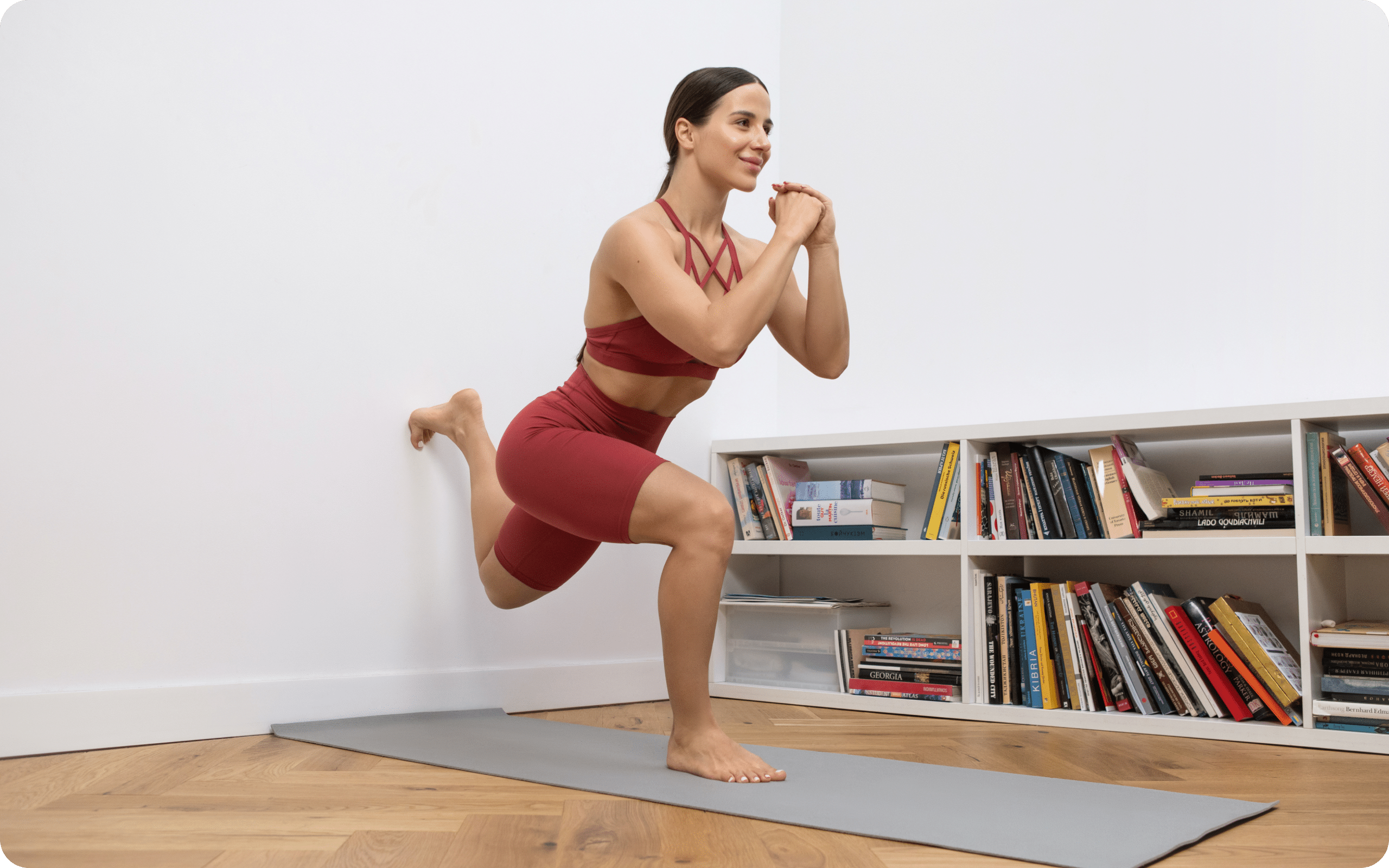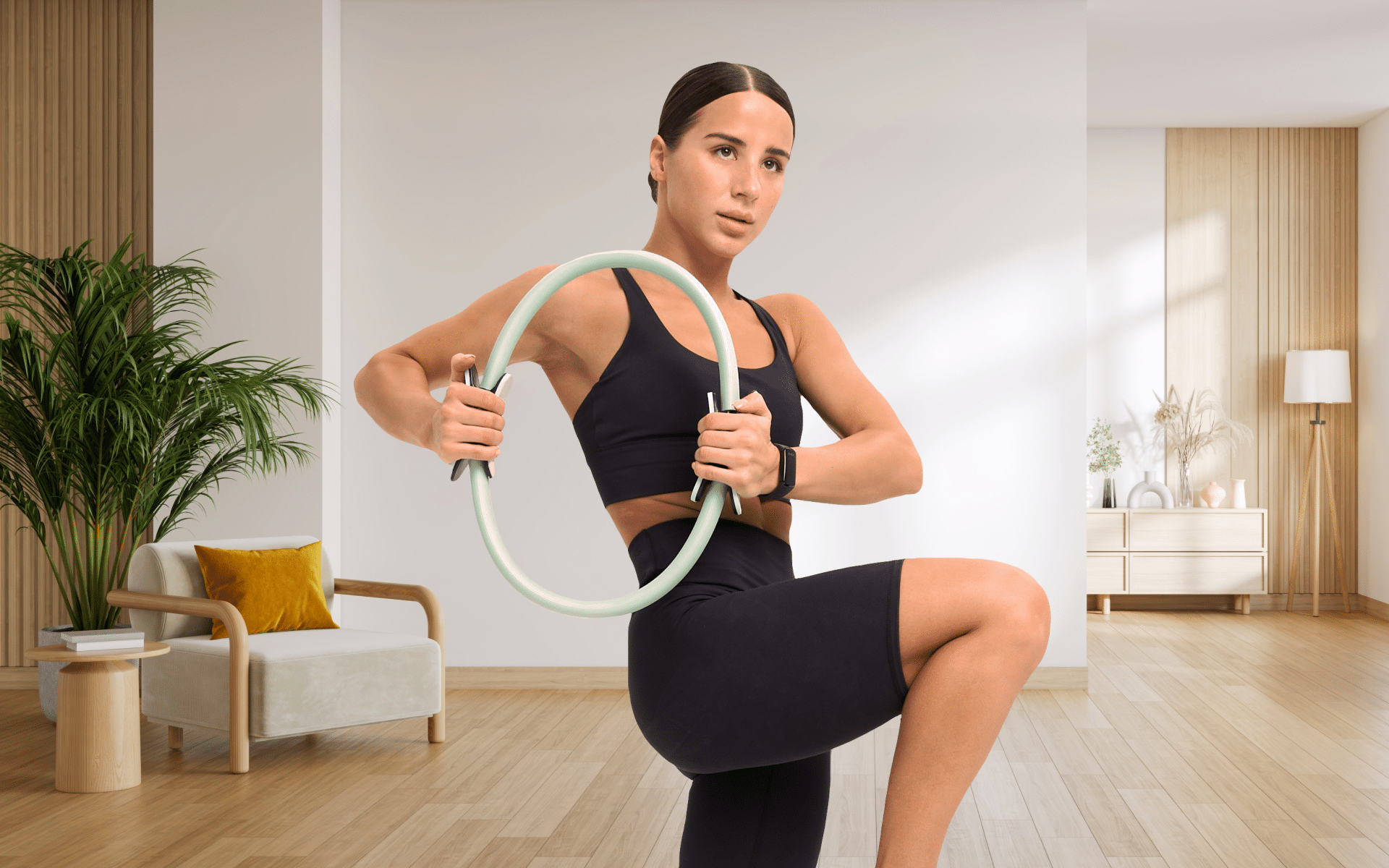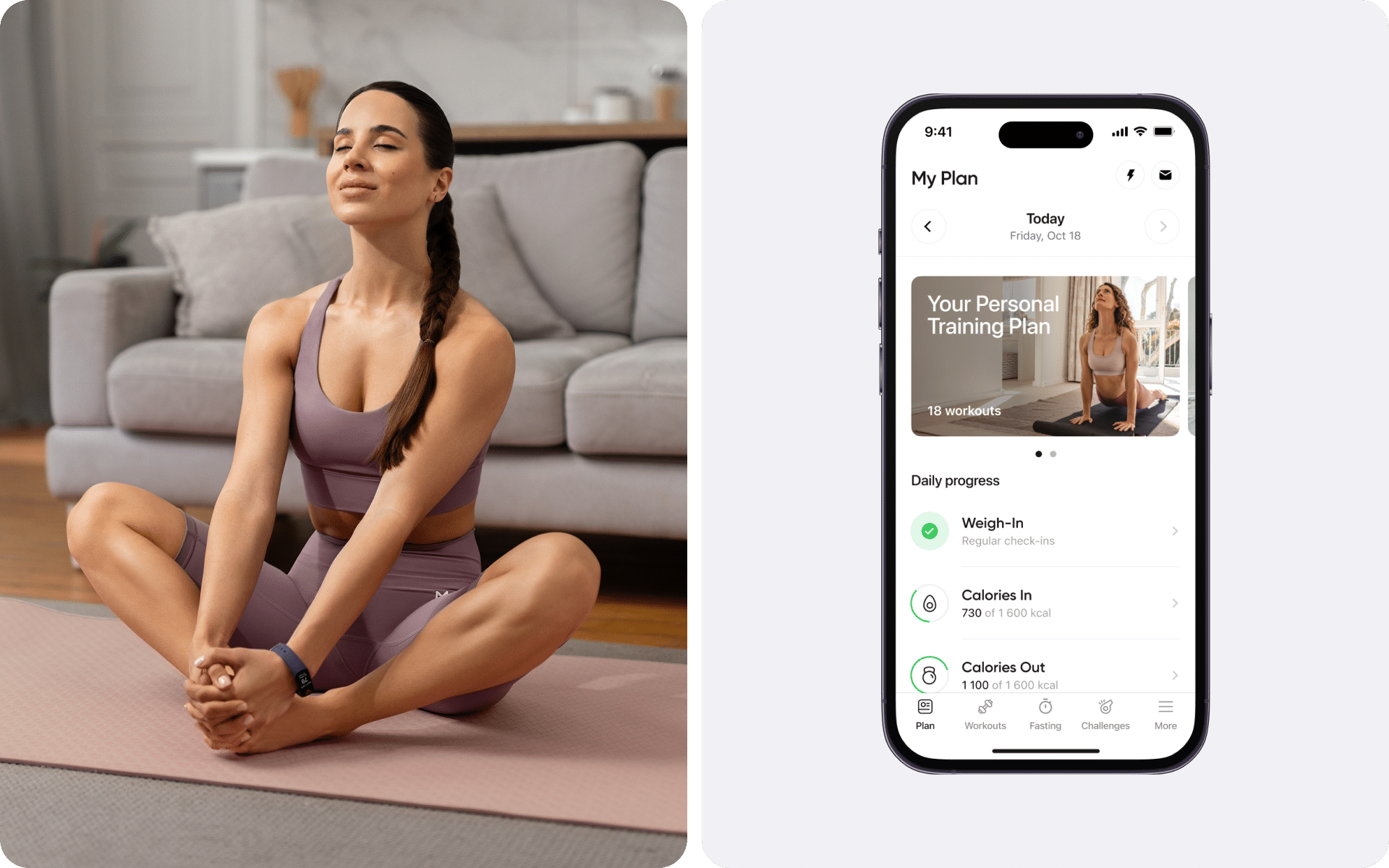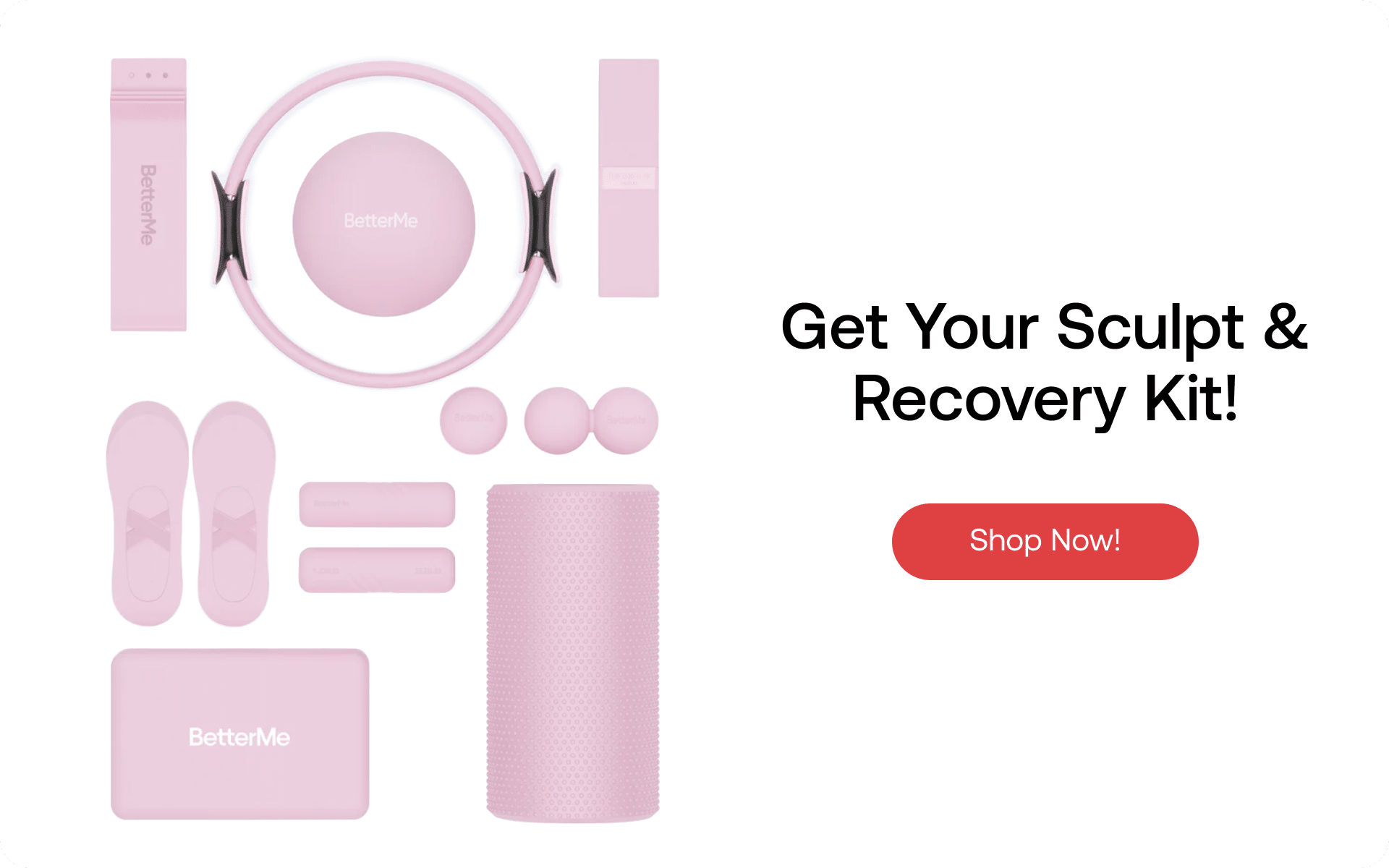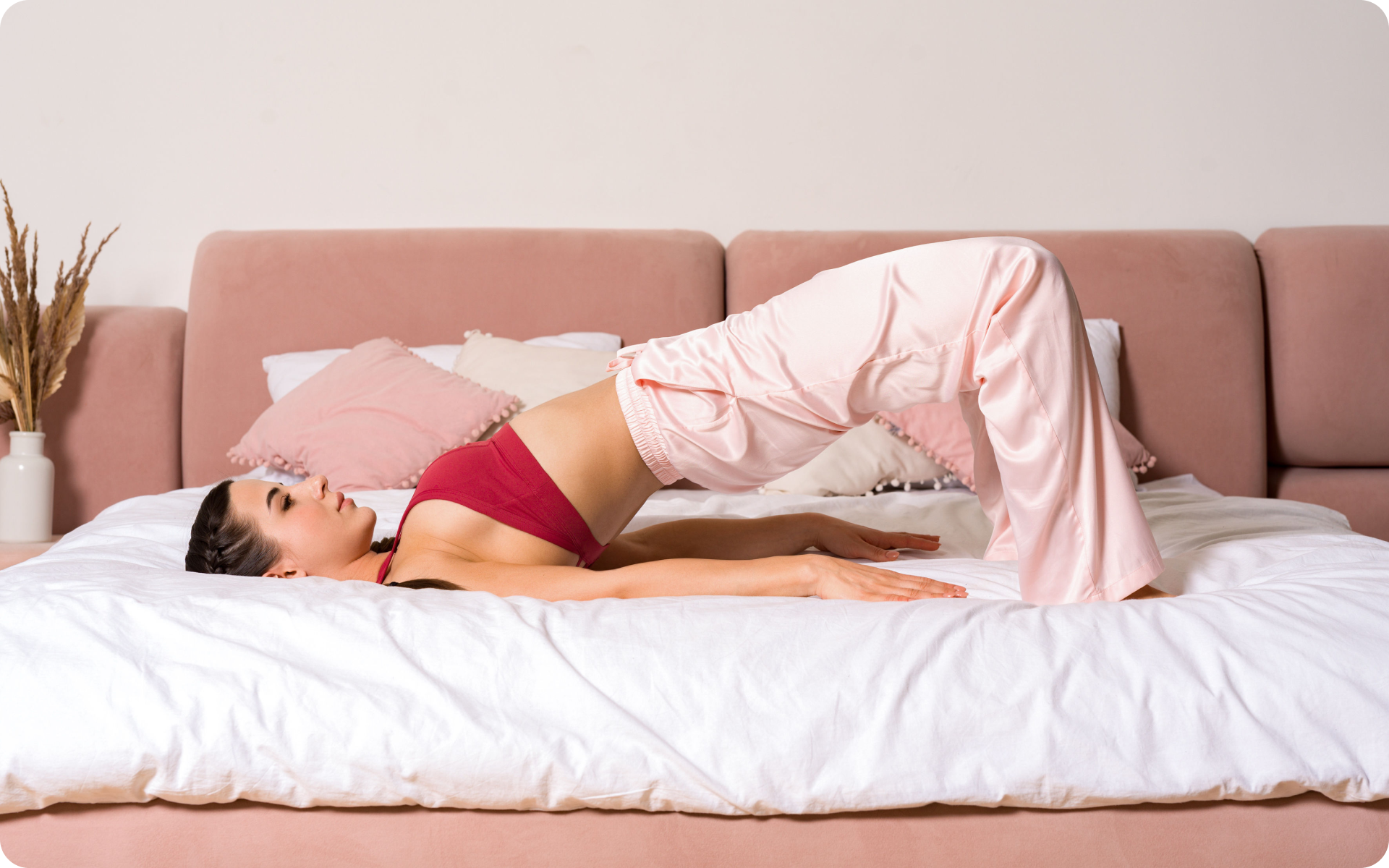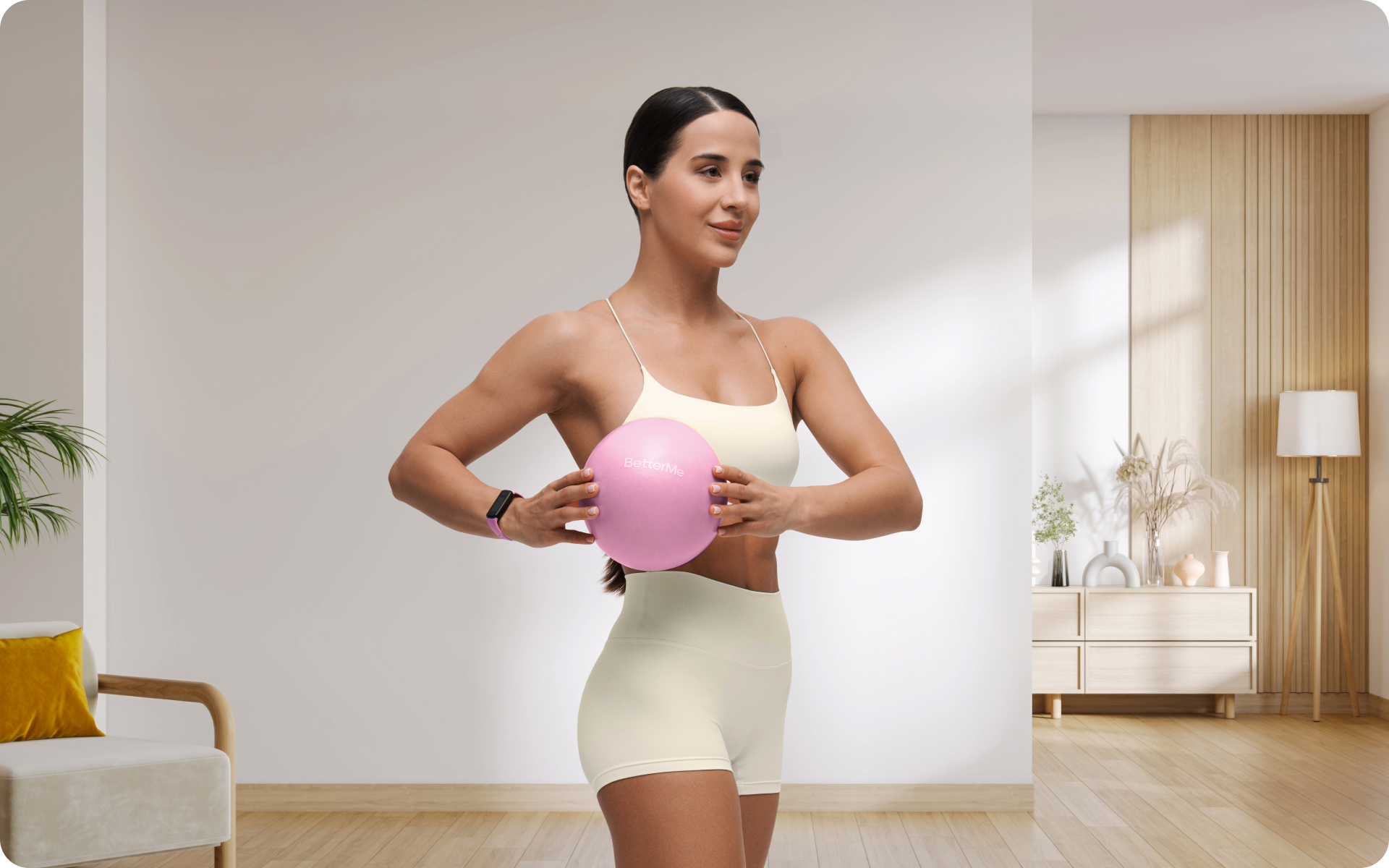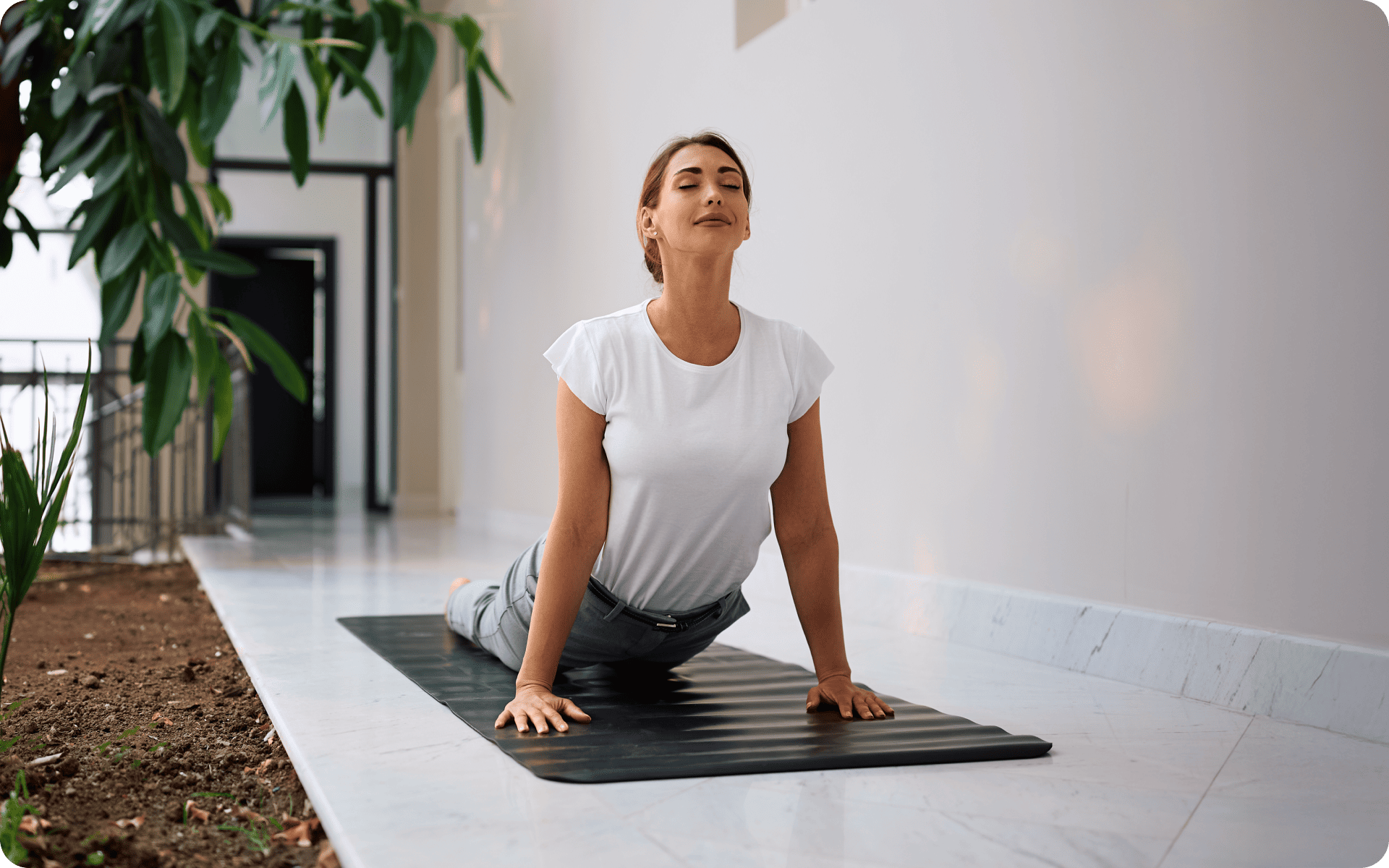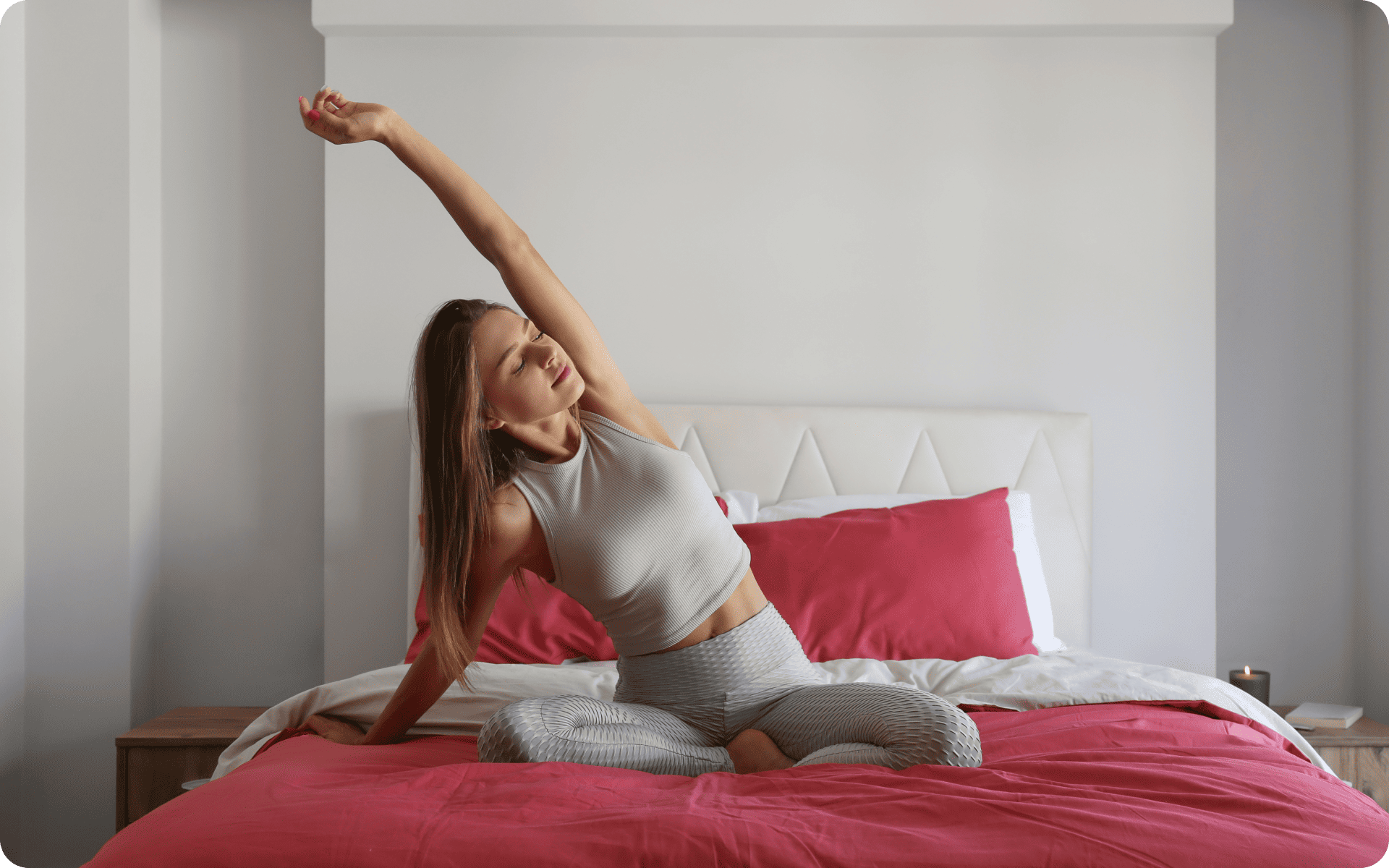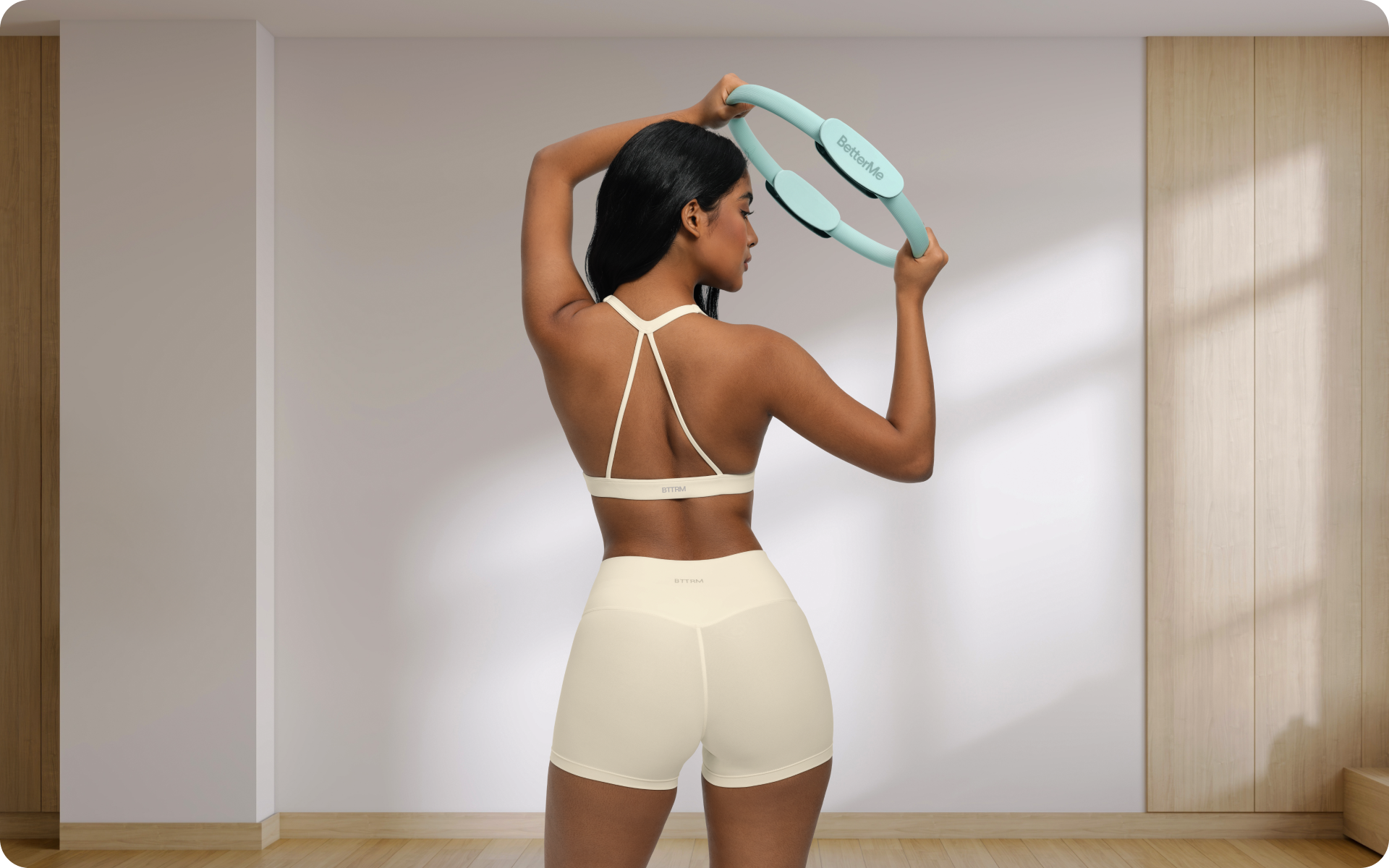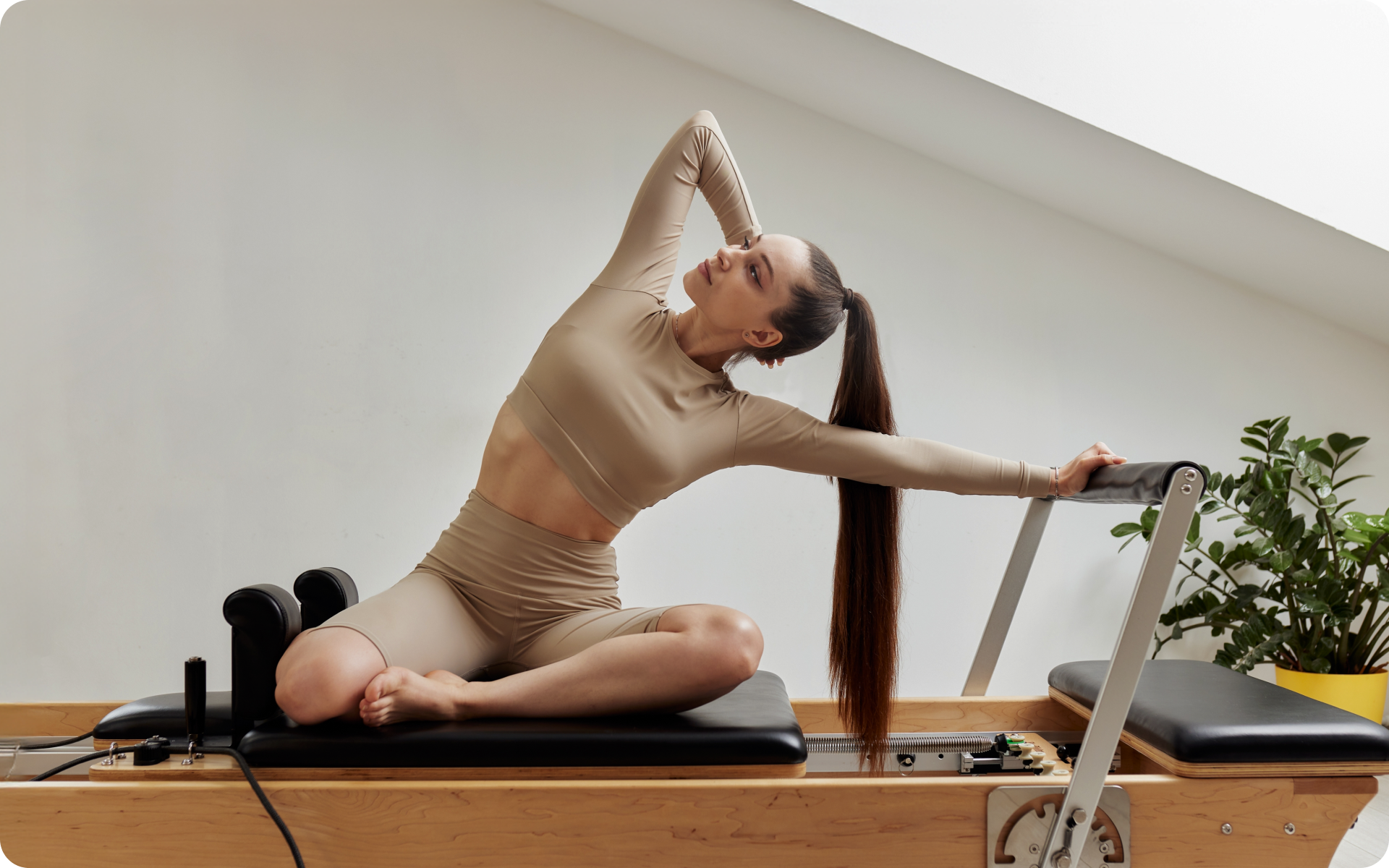Pilates has gained massive popularity in recent decades, particularly during the pandemic. As working out from home became a necessity, many turned to new forms of exercise that they had not previously attempted. For many, the mind-body connection offered by Pilates proved to be a welcomed physical and mental boost during a time when it was particularly difficult for most to manage either aspect.
But Pilates has been around for far longer than the pandemic or even the last couple of decades. In fact, it was developed by Joseph Pilates in the early 1900s. It can be performed at home with variations such as mat Pilates and wall Pilates, and can also be performed in a studio with the traditional reformer-based methods.
Whether you choose to pursue this enlightening activity at home, in a studio, or both is completely up to your preferences and budget. One of the best things about Pilates is its adaptability to a vast array of physical abilities and fitness levels. So, whether you’re just starting or have been dabbling in this form of exercise for decades, you can always find a new challenge to continuously help you improve.
Today, we’ll explore nine exercises that focus on strengthening your core and easing lower back pain.
Is 20 Minutes of Pilates per Day Enough?
Twenty minutes of focused Pilates per day has the potential to produce tremendous benefits. Of course, any amount of time is better than none, and many people find that keeping their sessions at an approachable duration, particularly as a beginner, keeps them feeling motivated and consistent.
While you will see benefits from doing Pilates just once or twice a week, experts agree that ideally, people should partake in at least three sessions a week to see maximal results (4). With Pilates being a relatively low-impact form of exercise, many find that daily practice is realistic for them and does not lead to burnout or overuse injury. However, everyone is different, so listen to your body, take the rest you need, and ease into it slowly.
Remember these three tips before starting any kind of Pilates session, whether it’s a wall Pilates beginner workout or movements using additional equipment:
- Go slow and pay attention to proper form. Maintaining the correct alignment and sequencing is the best way to reap the benefits while reducing the risk of injury.
- Change the move if it’s too difficult. Don’t be discouraged if you fail to perform some moves. Beginners in particular may struggle with certain movements and need to find a regression that allows them to build up to their eventual goal. Modify the move if you feel pain in your lower back or neck.
- Control your breath. Focusing on your breathing helps you engage your core muscles, calm your mind, and practice at the peak of your abilities.
Is Pilates at Home Effective?
One thing that makes Pilates so trendy is its accessibility to everyone. Even if you perform the exercises at home without any equipment, you can get an excellent workout that provides many of the same benefits a traditional studio class would (1).
Basic Pilates Moves are perfect for beginners who aren’t ready to spend additional time and money on instructor-based sessions.
The main Pilates benefits encompass:
- Better posture (6)
- Improved body strength and flexibility (5)
- Lower blood pressure (7)
- Reduced arthritis pain (3)
- Decreased back pain (8)
However, most experts agree that beginners should start Pilates with an instructor as they will help ensure you’re performing the movements correctly. This will decrease your risk of injury while enhancing the benefits. The most individualized approach typically comes with individual or small group in-person sessions.
Finding the right instructor is also essential. Some people with very little training pitch themselves as “Pilates gurus”. So, if you decide to sign up for any form of Pilates, research the credentials of the instructor and ask them how they can help you meet your specific goals. Find someone who will carefully listen to you and propose ways to live up to your goals.
Lean and toned up body isn’t just a far-fetched fantasy. Check out the BetterMe app and watch it propel your weight loss journey into high gear!
Is 30 Minutes of Pilates Effective?
Yes, 30 minutes of Pilates performed at least three times a week is likely to provide fantastic benefits. It’s important to ensure you choose the right level of challenge for your current fitness level and goals.
We’re presenting you with a robust home Pilates workout with no equipment that includes 9 exercises. Most of them are incredibly suitable for beginners, while others may require a little more practice.
We understand that not everyone can afford special equipment at home or pay for individual sessions. But this doesn’t mean you can’t participate in this form of exercise and reap its various benefits.
Pilates can even be performed by women who are pregnant or postpartum by safely strengthening the core and musculature of the pelvic floor (9).
Try these 9 Pilates moves to test the waters at home. We’ll start with simpler ones and progress to more advanced movements:
Move #1: The One-Leg Circle
How to execute:
- Lie on your back with your arms at your sides and your knees bent. Keep your feet on the floor.
- Exhale and lift one knee toward you so your shin is parallel to the floor.
- Start making small circles slowly while keeping your knee bent. Make the circles smaller if your hip bones start to move.
- Continue for one minute on each side.
Move #2: The Pilates 100
How to execute:
- Lie on your back with your arms at your sides and knees bent. As you exhale, lift one leg, either with the knee bent or straight.
- Pulse your arms up and down a few inches. Inhale for five pulses and exhale for five pulses. Then switch legs.
- Repeat with each leg five times until you get 100 pulses.
- Make it more challenging by lifting both legs together and holding them for all 100 arm pulses.
Move #3: The Swimming Exercise
How to execute:
- Get on your hands and knees. Place your hands under your shoulders and knees under your hips. Engage your core and keep your back flat.
- Exhale and stretch one arm forward, keeping your core stable.
- Inhale and place your hand back under your shoulder.
- Next, exhale while extending one leg out behind you and inhale returning your knee to the ground.
- Perform three sets of 10 on each side.
- Ramp it up by lifting both your arm and the leg on your opposite side at the same time.
Move #4: The Cat Stretch
How to execute:
- Start on your fours with your hands under your shoulders and your knees under your hips.
- Tuck your chin slowly toward your chest, inhale, and round your upper back toward the ceiling.
- Untuck your chin and exhale while letting your spine ease down toward the floor.
- Repeat the move 20 times.
Read more: Discover the BetterMe Pilates Essential Kit: Your Ultimate Pilates Companion
Move #5: Four Point Kneeling
How to execute:
- Get on all fours with your hands and knees on the floor. Your wrists should be underneath your shoulders and your knees must be underneath your hips.
- Extend the left leg behind you to tap the floor with your left toes.
- Lift your straight left leg up to hip height. Don’t arch your back or tilt your hips, and keep your core engaged.
- Lower your left toes to tap the floor. That’s one rep.
- Do eight repetitions.
- Switch sides and repeat.
Move# 6: Plank Hold
How to execute:
- Get in a high plank position with your legs straight and shoulders directly over your wrists.
- Engage your core. Your body should form a straight line from shoulders to heels.
- Beginners can rest their knees on the floor but maintain a straight spine.
- Hold the plank for one minute, focusing on your breath.
Move #7: Pilates Push-Up
How to execute:
- Kneel in a plank position with your knees on the floor and wrists beneath your shoulders. Engage your core by slightly tucking your hips.
- Maintain this plank position and bend your elbows to lower your chest toward the floor.
- Straighten your arms to press back up into plank position. This counts as one repetition.
- Perform 15-18 reps.
Move #8: Double Leg Lift
How to execute:
- Lie on your right side with your legs extended and feet stacked, resting your head on your bent left arm.
- Place your left palm gently on the floor just in front of your ribs.
- Engaging the core, raise both legs together. Avoid tipping your hips forward or backward.
- Lower your legs to hover just above the ground. This is one repetition.
- Perform five reps.
- Switch sides and repeat.
Move #9: Scissor Lift
How to execute:
- Lie on your back with both legs and arms extended toward the ceiling. Press your lower back into the floor.
- Lower your left leg toward the floor until it’s slightly above the ground, bending the top knee if you need to.
- Lift your left leg back up to the ceiling.
- Repeat with your right leg. This counts as one rep.
- Perform 10-12 reps.
https://cdn.betterme.world/articles/wp-content/uploads/2025/01/ready-2-6.png
Is Daily Pilates Enough Exercise?
Doing Pilates daily is effective and safe. Of course, calling it enough depends on the person. If you lead an active lifestyle and simply want to improve your overall body strength and flexibility, Pilates is surely a good option.
You can enhance your experience with Wall Pilates Moves or by adding equipment to your at-home sessions. The key to successful training is in the proper form, focused breathing, and switching the moves.
There are many exercises available on the internet. However, we recommend beginners hone their Pilates skills with the help of a professional instructor.
Essentially, you need to focus on consistency and modify the movements if you feel that they’re causing sharp pain, compensatory movement patterns, or they’re difficult to recover from.
If your goal is focused more on weight loss, you may need to add more vigorous training into your fitness routine in addition to a balanced caloric deficit diet.
Incorporating both aerobic and strength training, adequate sleep, and managing stress levels are other important components that must be addressed for those looking to lose weight.
Looking for a way to break the vicious cycle of weight loss and tone up all the jiggly parts? Watch the extra pounds fly off and your muscles firm up with the BetterMe app!
The Bottom Line
We’ve talked about the home Pilates workout: strengthen your core and ease lower-back pain with 9 exercises.
Pilates is an excellent form of exercise that’s suitable for everyone from beginners to advanced practitioners. This form of exercise will help you reap the essential benefits for your overall health: give you better posture, improve your body strength and flexibility, reduce arthritis pain, decrease low back pain, and lower resting blood pressure in individuals with hypertension or prehypertension.
Engaging your body in Pilates moves for 20 minutes, 30 minutes, or one hour can provide wonderful results. Of course, we advise beginners to take Pilates classes with a professional instructor. If you can’t afford it right now or you lack the time for in-person sessions, you can always start your Pilates routine on your own in the comfort of your home.
Remember to start slow, pay attention to your breathing, and modify movements if they seem too challenging.
DISCLAIMER:
This article is intended for general informational purposes only and does not serve to address individual circumstances. It is not a substitute for professional advice or help and should not be relied on for making any kind of decision-making. Any action taken as a direct or indirect result of the information in this article is entirely at your own risk and is your sole responsibility.
BetterMe, its content staff, and its medical advisors accept no responsibility for inaccuracies, errors, misstatements, inconsistencies, or omissions and specifically disclaim any liability, loss or risk, personal, professional or otherwise, which may be incurred as a consequence, directly or indirectly, of the use and/or application of any content.
You should always seek the advice of your physician or other qualified health provider with any questions you may have regarding a medical condition or your specific situation. Never disregard professional medical advice or delay seeking it because of BetterMe content. If you suspect or think you may have a medical emergency, call your doctor.
SOURCES:
- A Pilates Routine You Can Do Anywhere in Under 10 Minutes (2024, nytimes.com)
- Effects of aerobic and/or resistance training on body mass and fat mass in overweight or obese adults (2012, ncbi.nlm.nih.gov)
- Effects of mat Pilates on older adult women with knee osteoarthritis: A randomized controlled trial (2022, bodyworkmovementtherapies.com)
- Is Pilates as Good as Everyone Says? (2023, nytimes.com)
- Mat Pilates improves lower and upper body strength and flexibility in breast cancer survivors undergoing hormone therapy: a randomized controlled trial (HAPiMat study) (2022, ncbi.nlm.nih.gov)
- Mat pilates method improve postural alignment women undergoing hormone therapy adjunct to breast cancer treatment. Clinical trial (2021, ncbi.nlm.nih.gov)
- Mat Pilates training and blood pressure reactivity responses to psychological stress: comparison between normotensive and hypertensive postmenopausal women (2022, ncbi.nlm.nih.gov)
- Pilates for low back pain (2016, researchgate.net)
- The effects of clinical pilates exercises on functional disability, pain, quality of life and lumbopelvic stabilization in pregnant women with low back pain: A randomized controlled study (2021, ncbi.nlm.nih.gov)

